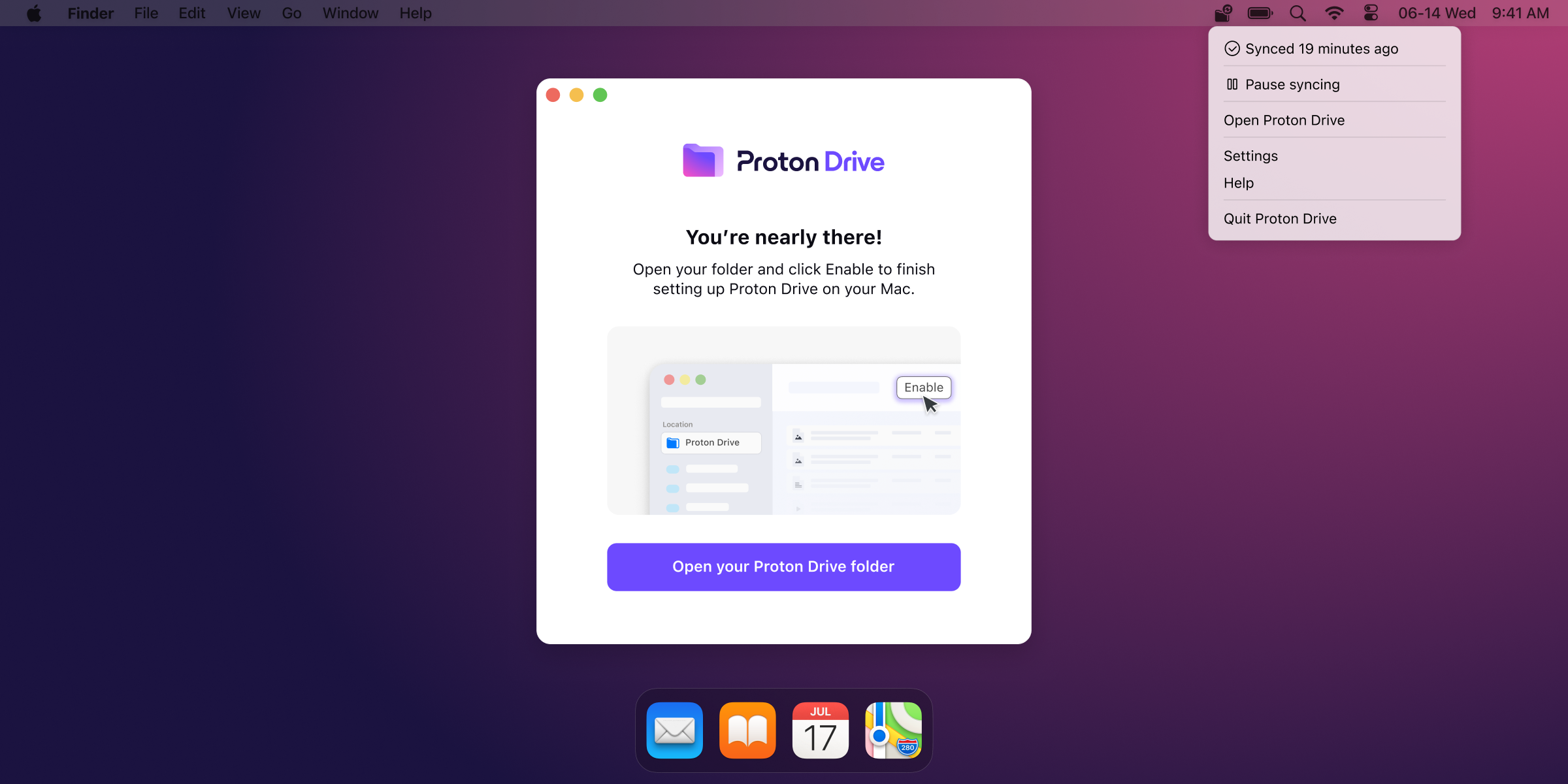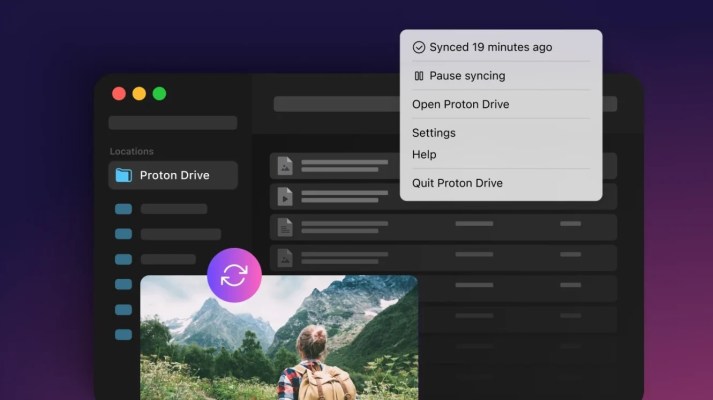Swiss privacy-focused company Proton has launched its end-to-end encrypted (E2EE) cloud storage service for Mac users, four months after it landed on Windows.
Founded some nine years ago, Proton was originally focused on its flagship Gmail alternative called Proton Mail, but the company has expanded its horizons into VPNs, a password manager, calendar and, indeed, cloud storage.
Proton debuted Proton Drive on the web last September, which was followed by native mobile apps in December and Windows in July — so today’s news pretty much means that Proton Drive is now fully cross-platform, with users able to synchronize everything across all devices they use.

Proton Drive for Mac. Image Credits: Proton
Proton Drive constitutes part of Proton’s grand plan to bring secure, privacy-focused Google-alternative products to market. Or, perhaps more accurately in the case of most Mac users, an alternative to Apple’s iCloud.
Indeed, Proton Drive promises full encryption for files and folders by default — although Apple did recently introduce end-to-end-encryption for some types of data on iCloud, it has to be manually activated by users. Proton Drive, on the other hand, says it uses full encryption across all data, including metadata and file-names, by default.
Proton Drive ships with 1GB of storage for free, with additional paid plans available starting at $4/month for 200GB of storage plus additional features such as the ability to automatically store previous versions of a file for up to 10 years.
For now, Proton Drive for Mac will only sync files to the cloud that are stored in the Proton Drive folder, but Proton says it’s working to enable synchronization for any local folder.
Also, while Proton has open sourced most of its apps through the years, allowing third-parties such as security researchers to inspect the underlying code, the Proton Drive Mac app isn’t yet open source — but the company says this will happen in due course.
And for Linux users, Proton has previously indicated that it will happen eventually, but it’s on its long-term roadmap.
